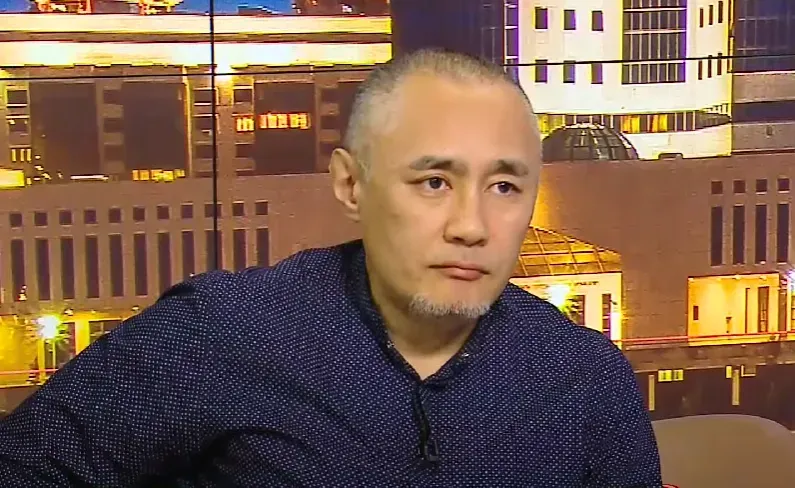Altai Zhakanbayev, a suspect in the assassination attempt of Kazakh opposition activist and journalist Aidos Sadykov in Ukraine, was detained in Kazakhstan after surrendering to local police on June 21. Sadykov was shot in the head on June 18 in Kyiv, where he resides after fleeing Kazakhstan due to political persecution. Ukrainian law enforcement agencies suspect Zhakanbayev and another resident of Kazakhstan, Meiram Karatayev, in the attack on Sadykov. The two suspects arrived in Kyiv on June 2 and allegedly rented apartments to surveil Sadykov before the attack occurred on June 18. After the attempted murder, the suspects fled to Moldova but Zhakanbayev surrendered to authorities in Kazakhstan.
Sadykov and his wife Natalya Sadykova fled Kazakhstan and were granted refugee status in Ukraine in 2014. The couple ran the Base YouTube channel, which is critical of the Kazakh government and oligarchs and has over 1 million subscribers. Sadykov, a former leader of an opposition party branch in Kazakhstan, was sentenced to two years in prison for “resisting the police” in a case they deemed politically motivated. The couple has been placed on Kazakhstan’s wanted list since October 2023. Sadykov’s wife accuses Kazakh President Kassym-Jomart Tokayev of involvement in the assassination attempt, while Tokayev has stated that Kazakh authorities are willing to join the investigation.
Kazakhstan has been asked by Russia to be prepared to supply the country with 100,000 tons of gasoline in case of shortages caused by an increase in Ukrainian drone attacks on Russian oil refineries. This request comes amidst tensions between Russia and Ukraine, with ongoing conflict in the region. The request for gasoline resupply highlights the interconnectedness of energy supplies and regional conflicts, with countries like Kazakhstan being potentially involved in supplying resources to neighboring nations in times of need.
The assassination attempt on Sadykov in Ukraine sheds light on the risks faced by activists and journalists who speak out against government authorities in oppressive regimes. The incident underscores the challenges faced by individuals battling political persecution and the lengths to which their oppressors may go to silence dissent. Sadykov’s case is a reminder of the importance of independent journalism and the need to support those who work tirelessly to expose corruption and injustice in societies where freedom of speech is suppressed.
The fact that Sadykov and his wife had to flee their home country and seek asylum in Ukraine due to political persecution speaks volumes about the state of human rights and freedom of expression in Kazakhstan. The targeting of journalists and activists for their outspoken views highlights the repressive nature of the regime in Kazakhstan and the dangers faced by those who dare to challenge the status quo. The international community must stand in solidarity with individuals like Sadykov and support their fight for justice and freedom from oppression.
In a world where the press and independent journalism are increasingly under threat, it is crucial to support organizations and individuals who are dedicated to uncovering the truth and holding those in power accountable. The case of Aidos Sadykov serves as a stark reminder of the risks faced by journalists and activists who challenge authoritarian regimes and the importance of standing up for freedom of speech and human rights. By supporting independent journalism in Ukraine and around the world, we can help provide a platform for voices that are often silenced and ensure that the truth is brought to light, no matter the obstacles that stand in the way.


